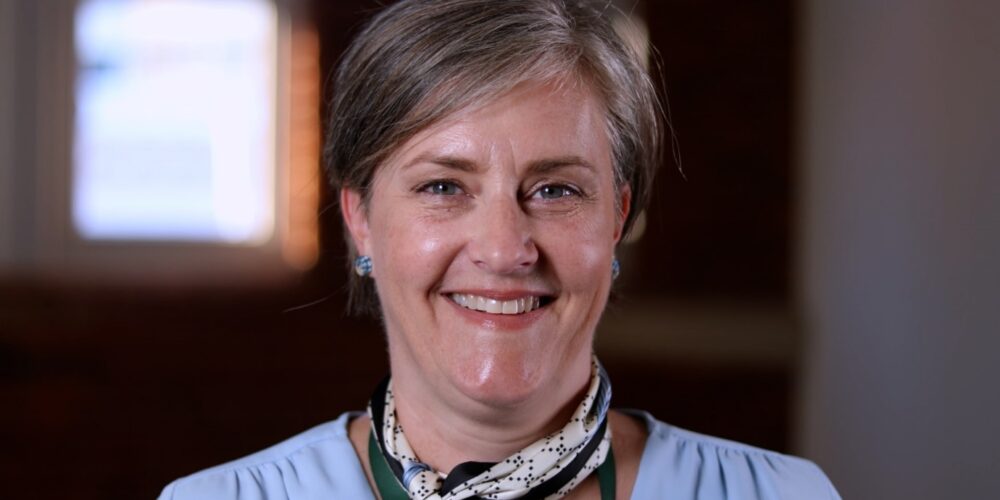Three things to know when planning your next career move

Whatever your age or level of experience, it’s inevitable that at some stage in your life you’ll question where your career is heading.
Professor Julia Richardson from Curtin’s School of Management and Marketing believes there is no one-size-fits-all solution. Instead, the co-author of the guidebook, An Intelligent Career: Taking Ownership of Your Work and Your Life, proposes a more personalised approach.
She suggests you develop your own strategies centred around three ‘career knowings’: knowing WHY (your motivation), knowing HOW (your skills and competencies) and knowing WHO (your personal and professional networks).
“Careers aren’t static,” Richardson explains. “They are constantly evolving and need to be nurtured according to your individual preferences and responsibilities.”
Knowing WHY
It may seem trivial to determine your motivation to work, but Richardson, who has researched career management strategies for the past 18 years, believes it’s the first step in ensuring the longevity of your career.
“You’ve got to know what motivates you. If you’re unmotivated, you’ll be less willing to go that extra mile or to stay resilient when things don’t go right,” she says.
Using data sourced from a study of 181 employed graduates from a Dutch university, Richardson and her colleagues determined that employees with higher levels of ambition were more likely to be proactive at work and take charge of their work situations, which in turn increased their career satisfaction more than those with lower levels of ambition.
“Picture a sport or activity you enjoy. You’ll get up and train at 4am if you need to, and that’s what’s going to make you stand out,” Richardson says.
“Think about what motivates you. Is it money? Objective success? Status? Or do you not care about those things at all? Do you want to work with animals or care for the elderly? Are you committed to technological innovation and working with machines?”
Richardson believes there’s no right or wrong choice: the main thing is to make sure your career path aligns with your motivation. If it doesn’t, she suggests it may be worth making a career change. Just remember to be realistic about your options.
“If you’re raising three kids, then your motivation is likely to have money to ‘put bread on the table’ or to have a sense of job security. But if your current paid work isn’t inspiring you, bear in mind that you may be motivated by non-work activities such as volunteering,” Richardson says.
“In fact, you never know what opportunities might come out of voluntary work. It might even lead to a paid job in a professional field that’s more aligned with your personal interests.”
Knowing HOW
Richardson says that determining the skills and competencies you need to achieve your career goals now and in the future is essential to creating a sustainable career and future-proofing it in the changing global marketplace.
But it isn’t just hard skills she says you should think about: it’s soft skills, such as creativity, critical thinking, problem solving, conducting independent research, time management and a plethora of other skills that can be transferred to a range of jobs.
“If you’re stuck, keep an eye out for job advertisements in your industry and look at the job descriptions. Look at the competencies they require. If they all want teamwork, leadership and communication skills, then you better make sure you have them,” Richardson says.
“In addition to that, you need to look at where your industry is going. What are the trends? If you want to become a lecturer, you know you need to build your digital knowledge because universities are moving more towards massive open online courses and e-learning. So, the question becomes: ‘How can I engage with technology to get the job done?’”
If you’re missing skills, Richardson believes you should consider training or undertaking further study.
“Do you study a graduate diploma or certificate at a formal institution? Do you check with your professional association to see if they offer training opportunities, be it a one-day workshop or a week-long course?” she offers.
“Alternatively, if the skills you need don’t seem to be taught anywhere or if formal learning doesn’t appeal to you, you should consider looking to peers, friends or mentors for support.”
Knowing WHO
According to Richardson, it’s not just about what you know: who you know is also important. She raises the point that it’s essential to have a diverse personal and professional network beyond your immediate family, friends and current work colleagues.
“There’s a psycho-social comfort in networking with people similar to you, but if your organisation or industry disappears, then your network might disappear along with it,” Richardson says.
“That’s why you should join clubs, institutions or societies, or go to conferences, to expand your professional network both within and outside of your industry.”
Richardson points to Toastmasters as a classic example. The worldwide non-profit organisation, which helps members from diverse backgrounds become more confident communicators, presenters and leaders, has more than 70 clubs in WA alone with plenty of opportunities to network with people from a variety of industries.
She also recommends local sports clubs, theatre groups or not-for-profit charities as places to find potential mentors, career advisors or future colleagues.
“Let’s imagine I attended an RSPCA volunteering event. I might meet a volunteer who works in banking who offers to take a guest lecture for me, then I might offer them sessional tutoring work if the opportunity arises. You never know what might happen,” Richardson says.
“Extensive research shows that the more diverse your network is, the more career opportunities you are likely to have. It’s clearly worth making the effort to connect with people across a wide range of contexts.”
How do I change career?
Richardson acknowledges that career change can be frightening. As she describes it, you’re leaving the ‘tribe’ you’re familiar with and embarking on a journey into the unknown, so how do you ensure it’s as smooth a transition as possible?
Richardson suggests you follow the concept of the ‘adjacent possible’ – a term originating from theoretical biology that has been adopted by career counsellors to refer to a new way of thinking about how to navigate the career landscape.
“Want to get from Point A to Point D? Don’t make a quantum change: gradually progress from Point A to B to C to D,” Richardson explains.
“Say you’re in health care and want to get into mining. A way to get your foot in the door is to look for healthcare opportunities in the mining industry or related industries and take it from there.
“Career development is incremental. We often focus on big opportunities, but we tend to forget that small opportunities can lead to big opportunities later on. Take elite athletes as an example. They don’t go from playing in the backyard to representing their country in the Olympics. There were numerous small steps along the way, and that’s how you should view your career journey too.”



